No Results Found
The page you requested could not be found. Try refining your search, or use the navigation above to locate the post.
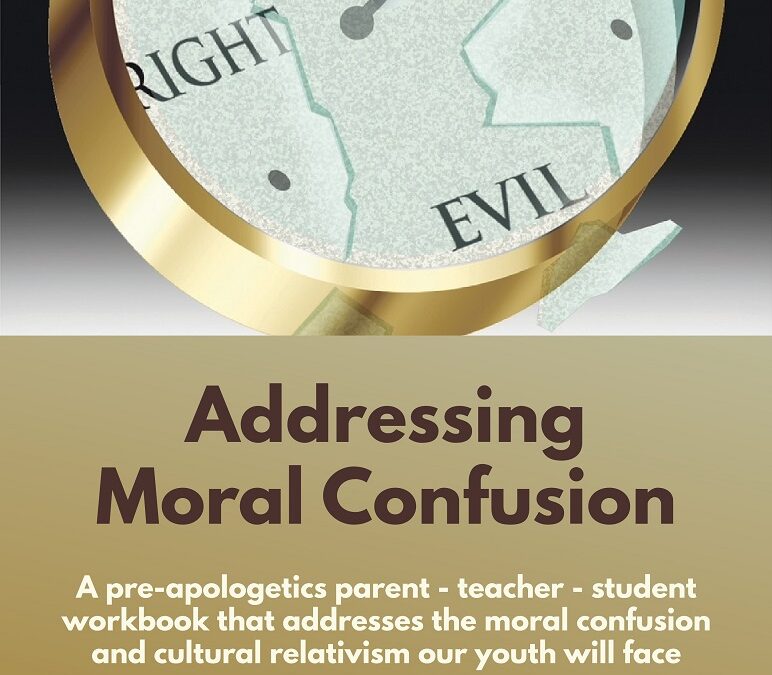
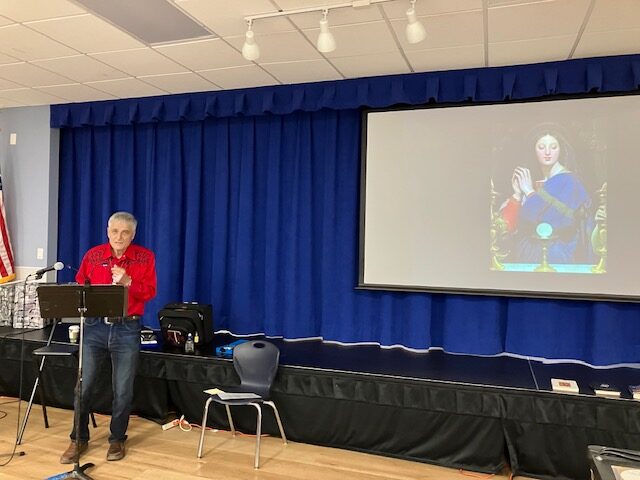
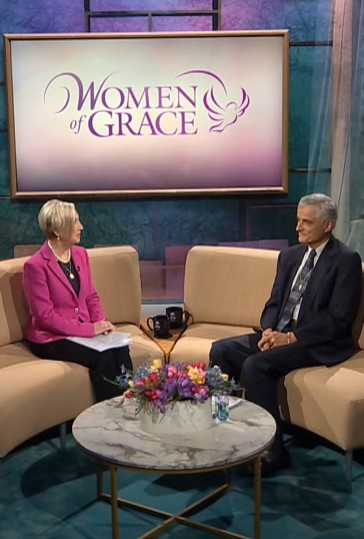
The goal of this workbook is to help our youth to receive catechetical instruction without getting bogged down by the mindset of the world today, thereby enabling them to be more open to the truth of the Gospel of Christ and His Church. It uniquely addresses these challenges, drawing from The Catechism of the Catholic Church, as well as great theologians and philosophers including C.S. Lewis, G.K. Chesterton, Fulton Sheen, St. John Cardinal Newman and others knowledgeable in moral psychology and human behavior.
Age group: High school and young adults especially those already enrolled in institutions of higher learning. Not all of them may be practicing Christians. It should be of interest to all teachers including those that are currently working with younger age groups. Parents will also benefit from the material and convey basic themes … example, Session One: “Should you believe everything you hear?
A full-size teachers manual 8 1/2 half by 11 paperback edition: $19.99 | Kindle: $9.99
Teachers receive a 20% discount on bulk orders of a dozen or more!
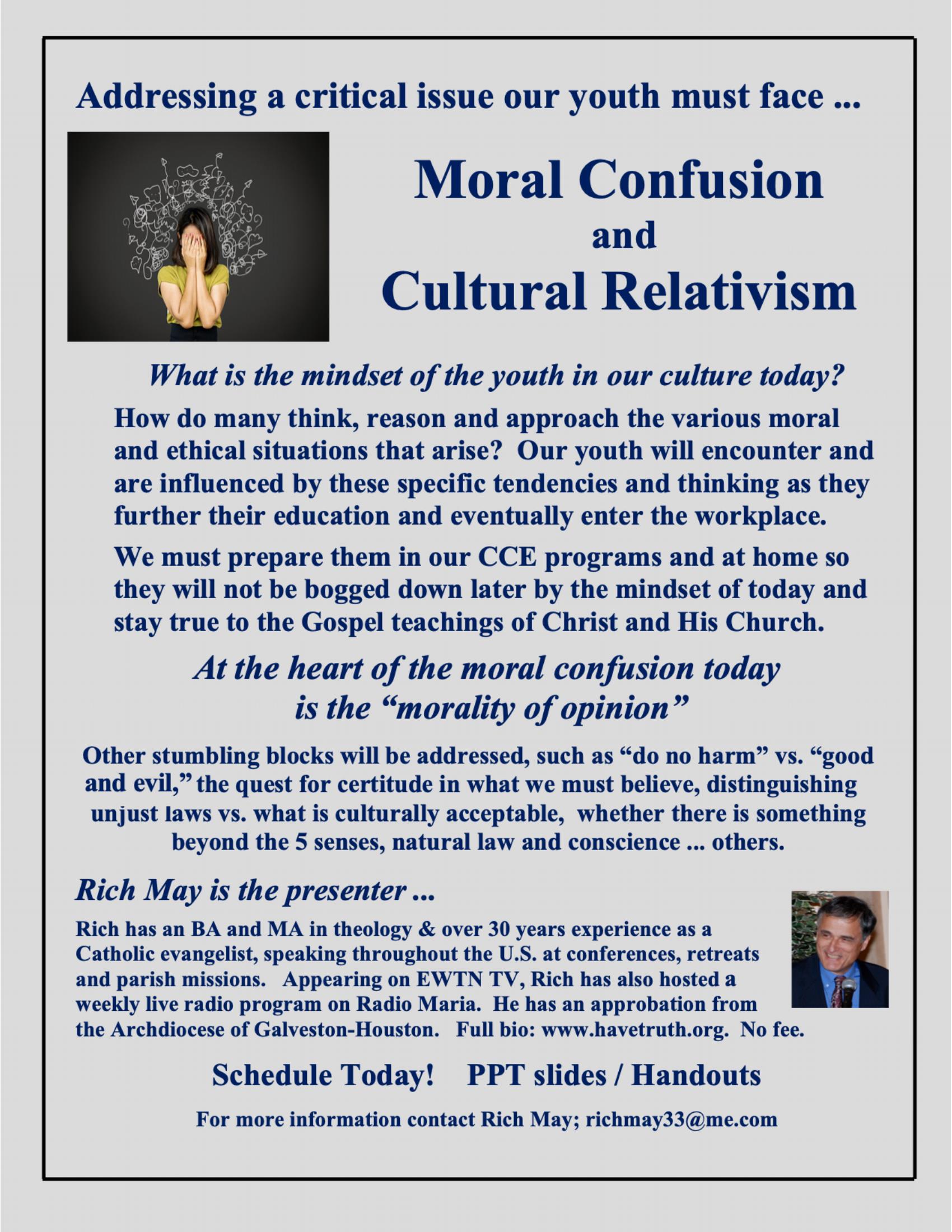
“Rich May’s book entitled Addressing Moral Confusion should be a widely used tool that can help young people today navigate our fractured world. I recommend it to all who are charged with sharing the truth of Jesus Christ with the next generation.” – Bishop Joseph E. Strickland, Bishop Emeritus, Diocese of Tyler, Texas
“In Addressing Moral Confusion, Rich May responds to various forms of moral relativism and ‘group thinking’ that are prevalent in the world today. Drawing upon logic, the natural law, Scripture, and Catholic tradition, he exposes the fallacious arguments used to defend abortion, gender ideology, and other harmful movements. Even those who might dispute certain matters of empirical data will benefit from this book. Rich May not only provides moral arguments; he also incorporates prayers and devotions—especially to the Virgin Mary—that support wisdom, virtue, and holiness.” – Dr. Robert Fastiggi, Professor of Dogmatic Theology, Sacred Heart Major Seminary, Detroit
“In a world with so much confusion, Addressing Moral Confusion provides the reader with the tools to engage the errors and challenges the faithful are facing.” – I. Aguilera, Principal, St. Elizabeth Ann Seton Catholic School, Houston, TX
“As a homeschool parent who has taught my children from K to 12, I have found Rich May’s Teachers Workbook to be an excellent, concise and engaging teaching resource that should be used in every school curriculum.” – F. Dunne, Homeschool Parent
“Rich May’s genius for clarity and timeliness is demonstrated through the scholarly and well-informed portrayal of these critical issues, the necessity for us to grasp and understand the issues, and the motivation for us to take zealous action! Well Done! Highly recommended!!” – R. Lochner, USMC retired, Catholic Educator and Author
“As a parish educator, I believe Addressing Moral Confusion fills a profound void in Catholic moral instruction for youth by giving young Catholics the foundational moral principles, fundamental truths, and intellectual tools with which to understand the reality of absolute moral truth as taught by the Catholic Church and to recognize the counterfeit morality of today’s modern, secular culture.” – J. Barros, Retired Director of Parish Faith Formation
“This is Moral teaching at its finest. Each chapter in itself is foundational, yet each chapter builds on the previous foundational chapter so that what you end up with is a solid understanding of God’s Truth as it pertains to Moral Law. These are truly solid building blocks that could be used in any Catholic teaching program.” – K. Kerne, Catholic Catechist
“Rich May has written a manual to stress and arrest the dire circumstances that are swiftly losing a whole generation of children trapped in social and cultural milieus that are fast bankrupting themselves of every traditional moral and spiritual rectitudes, and systematically capitalizing on the children’s vulnerability to feed them with the worst forms of relativisms ever known in human history.” – Fr. R. Nwankwo, PhD
“As a CCE teacher of 30 years, I incorporated Rich May’s book Addressing Moral Confusion into a high school Confirmation class. It is written in a very clear and concise manner that appeals to all, especially high school students. In addition, the handouts which address moral questions present an excellent opportunity to put our Catholic faith into practical moral applications. I highly recommend the book.” – Bill Alexander, Catholic High School Teacher
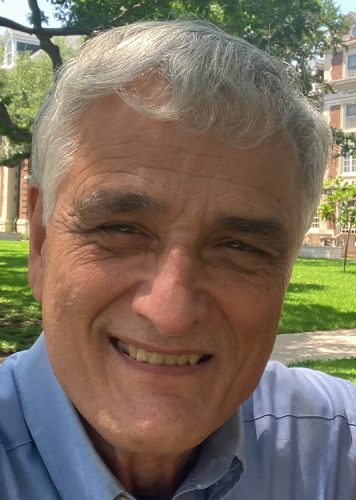
A former Air Force pilot, Rich May is a retired aerospace engineer by profession. He has a BA in Pastoral Theology from the University of St. Thomas in Houston and an MA in theology from the Franciscan University in Steubenville Ohio. He has appeared several times on the Eternal Word Television Network (EWTN) and often on Catholic radio with a live weekly show on Radio Maria. With an approbation from the Archdiocese of Galveston-Houston, he speaks locally and nationally. He has 35 years experience teaching catechesis at all levels and has authored several booklets including The Rosary a Prayer For All Christians and The Rosary a Prayer for All Native Peoples. Currently he is teaching the youth how to courageously respond to the counter-culture.
The page you requested could not be found. Try refining your search, or use the navigation above to locate the post.
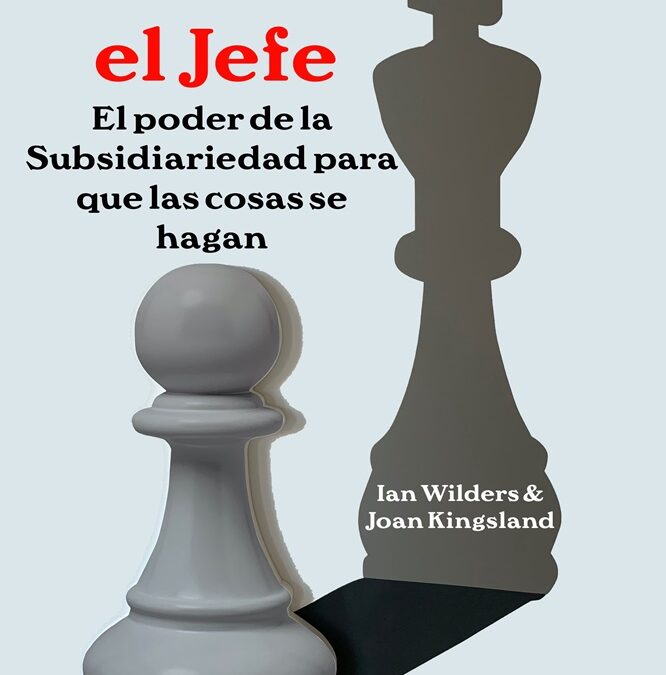
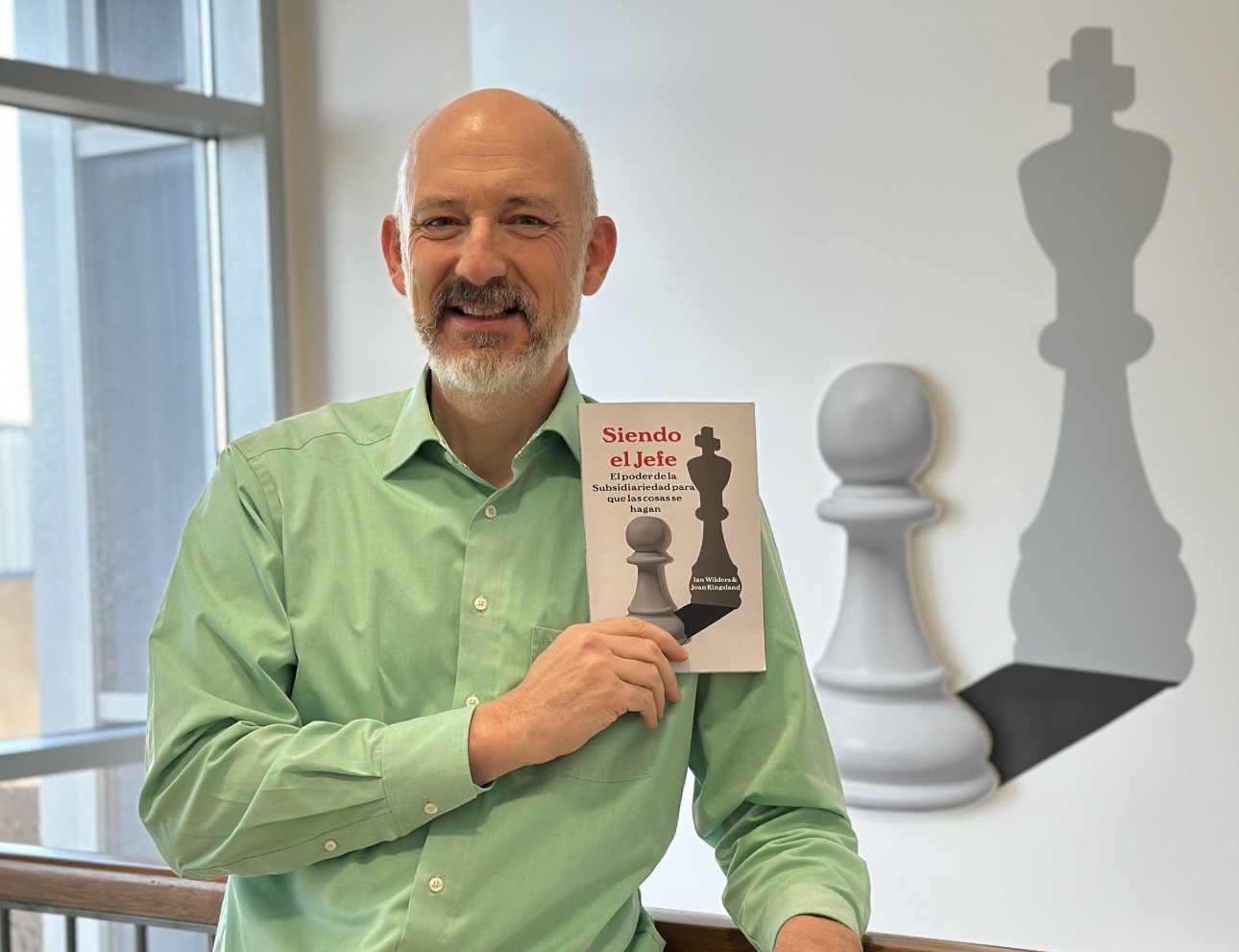
Ian es un CEO visionario conocido por defender la subsidiariedad en el lugar de trabajo. En su libro, comparte ideas prácticas y ejemplos reales de cómo este concepto impulsa la innovación, la colaboración y el éxito. Mediante el fomento de la autonomía y el reconocimiento de los talentos individuales, Ian ofrece un plan para transformar las estructuras tradicionales en lugares de trabajo dinámicos. A través de sus ideas, que invitan a la reflexión, invita a los líderes a liberar todo el potencial de sus equipos, ayudando al empresario o directivo a abordar cuestiones como las siguientes:
Paperback: $14.95 | Kindle: $9.99
TBA
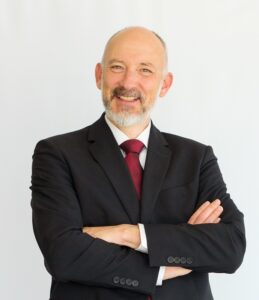
Ian Wilders dirige una empresa multinacional con empleados en España, Bélgica y Francia. Viajero apasionado, se embarcó en una vuelta al mundo de un año de duración con su mujer y sus cuatro hijos y abrazó el mundo con la mente abierta. A menudo inspira a las organizaciones mediante cautivadoras charlas sobre la subsidiariedad y la expresión del talento.
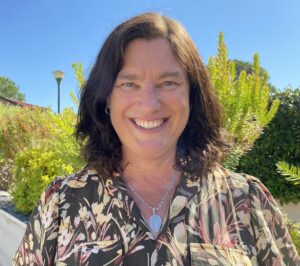
Joan Kingsland es Consagrada del Regnum Christi desde hace más de 30 años. Enseña cursos como Doctrina Social en el Ateneo Regina Apostolorum de Roma. Durante las vacaciones de verano Joan aporta su experiencia como consultora teológica en Ruah Woods en Cincinnati, Ohio.
The page you requested could not be found. Try refining your search, or use the navigation above to locate the post.
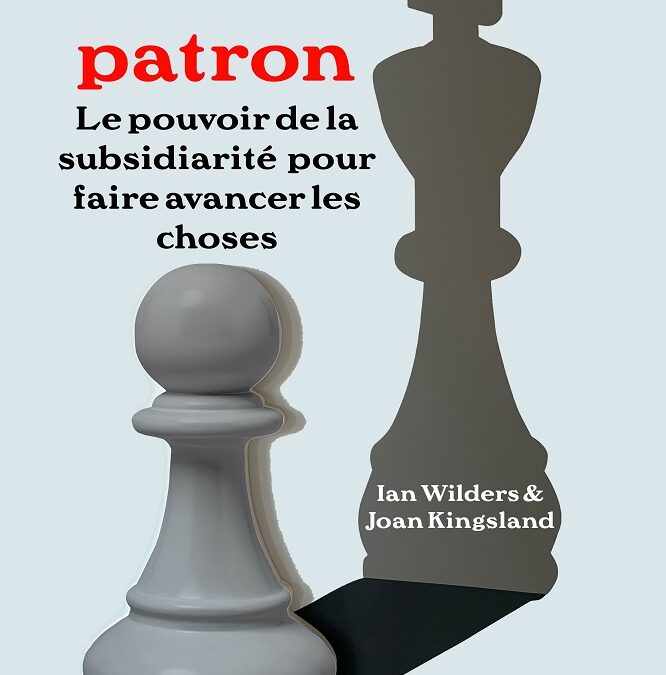

Ian est un PDG visionnaire connu pour son plaidoyer en faveur de la subsidiarité sur le lieu de travail. Dans son livre, il partage des idées pratiques et des exemples concrets sur la façon dont ce concept favorise l’innovation, la collaboration et le succès. En encourageant l’autonomie et en reconnaissant les talents individuels, Ian propose un plan pour transformer les structures traditionnelles en lieux de travail dynamiques. Grâce à ses idées stimulantes, il invite les dirigeants à libérer le plein potentiel de leurs équipes, en aidant les chefs d’entreprise ou les cadres à répondre à des questions telles que celles-ci :
Livre de poche: $14.95 USD | Kindle: $9.99
Bientôt disponible

Ian Wilders dirige une entreprise multinationale dont les employés travaillent en Espagne, en Belgique et en France. Voyageur passionné, il s’est lancé dans un tour du monde d’un an avec sa femme et ses quatre enfants et a embrassé le monde avec un esprit ouvert. Il inspire souvent les organisations par des exposés captivants sur la subsidiarité et l’expression des talents.

Joan Kingsland est une femme consacrée de Regnum Christi depuis plus de 30 ans. Elle enseigne des cours tels que la Doctrine sociale à l’Athénée Regina Apostolorum à Rome. Pendant les vacances d’été, Joan offre son expertise en tant que consultante théologique à Ruah Woods, à Cincinnati, dans l’Ohio.
The page you requested could not be found. Try refining your search, or use the navigation above to locate the post.
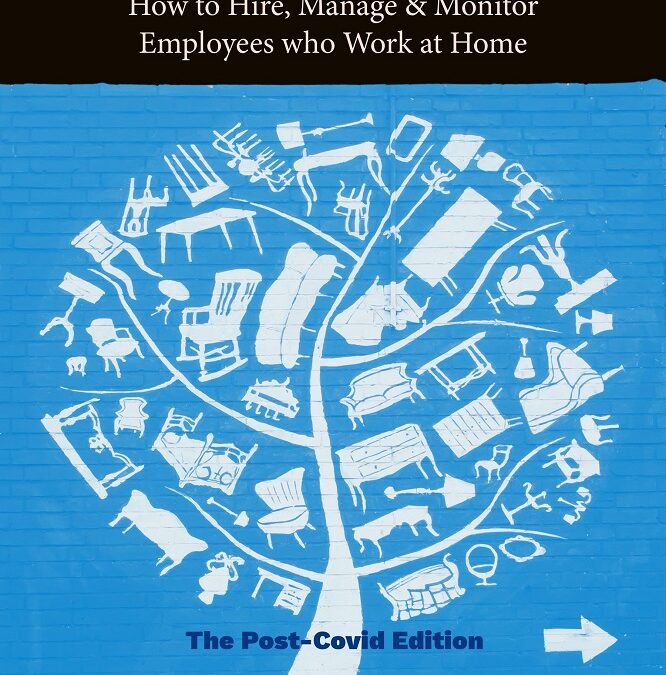

Aren’t telecommuters just employees who work at home?
In the landmark 1992 edition of Homework: How to Hire, Manage & Monitor Employees who Work at Home, businessman and entrepreneur Phillip Emile Mahfood described three types of telecommuters:
and asked some important questions concerning them:
While telecommuting is obviously a savings for the employee in terms of the time, expense and pressures of commuting, how does it help the employer?
In Homework, author Phillip Emile Mahfood provides an in-depth analysis of the cost benefits to all involved, and also details an echo-effect in which the benefits to the employee are a boon to the employer and vice versa. A few of the employer’s benefits include:
Increased productivity? Wouldn’t there be less direct supervision and, therefore, less accountability among at-home workers?
Telecommuting is about productivity and accountability — not office politics, not the corporate ladder and not “people pleasing.” Thanks to today’s technology, supervision of home workers doesn’t have to be a problem, and with less time wasted in commuting, workers have more uninterrupted, time-on-task hours per day. The guarantee of a productive telecommuting plan is in its method of structuring and implementation.
How does one structure a telecommuting program that ensures productivity and profitability?
Homework shows companies how to implement an air-tight program, covering every aspect from the cost of starting up to managing those who work outside the office. Using case histories of companies that have effectively integrated telecommuting programs, this hands-on guide explores all the key issues:
In this post-Covid edition, Dr. Sebastian Phillip Mahfood picks up where his father left off following an additional three decades of technological development and a world-wide cataclysm that caused for a time the home-basing of a great number of employees in practically every industry, government office, school and college.
Paperback: $19.95 | Kindle: $9.99
TBA
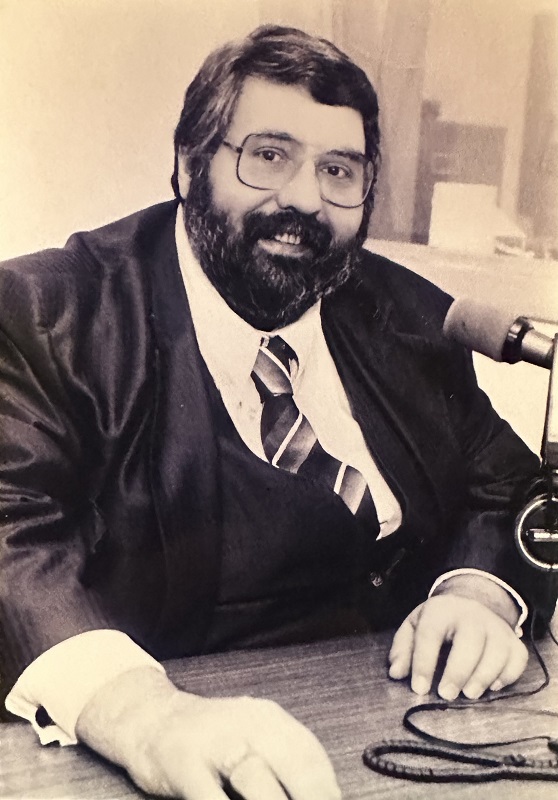 Phillip Emile Mahfood (1947-2004) owned and operated a telemarketing sales company for over three decades and was a consultant specializing in the establishment and management of telecommuting and telemarketing divisions who traveled extensively to conduct seminars on the benefits of teleprocessing.
Phillip Emile Mahfood (1947-2004) owned and operated a telemarketing sales company for over three decades and was a consultant specializing in the establishment and management of telecommuting and telemarketing divisions who traveled extensively to conduct seminars on the benefits of teleprocessing.
The author of three business books, including TeleSelling: High Performance Business to Business Phone Selling Techniques and Customer Crisis: Turning an Unhappy Customer into a Life-Long Client, Phillip Mahfood sought to provide business owners with the kind of expertise that became even more greatly needed during the extended Covid-19 homestays as businesses struggled to figure out how to “hire, manage & monitor,” in effect, to ensure their businesses could continue to thrive with remotely located human resources, the home-based worker.
 Sebastian Phillip Mahfood was raised in a home of an innovator in work-based methodologies, learning first-hand the secrets of the Arab caravan model of entrepreneurialism under the tutelage of someone who’d have given the most die-hard Phoenician colonialist a run for his money.
Sebastian Phillip Mahfood was raised in a home of an innovator in work-based methodologies, learning first-hand the secrets of the Arab caravan model of entrepreneurialism under the tutelage of someone who’d have given the most die-hard Phoenician colonialist a run for his money.
Such techniques as he learned from his father enabled him to remotely multiply twenty-fold over the course of a decade the tuition revenues of a small Catholic liberal arts college in central Connecticut relying almost exclusively on a network of home-based faculty and staff. His skills also enabled him to launch a home-based publishing house and radio station and manage the efforts of what is now over two hundred authors and show hosts in a growing Catholic media enterprise.
The wisdom revealed in this book begins with that of Phillip Emile Mahfood and is extended by his son, who has also accomplished through remote work while traveling the globe, four master’s degrees following the completion of his doctorate, the establishment of a Catholic Distance Learning Network, and the development of a number of 100% online service organizations.
The page you requested could not be found. Try refining your search, or use the navigation above to locate the post.
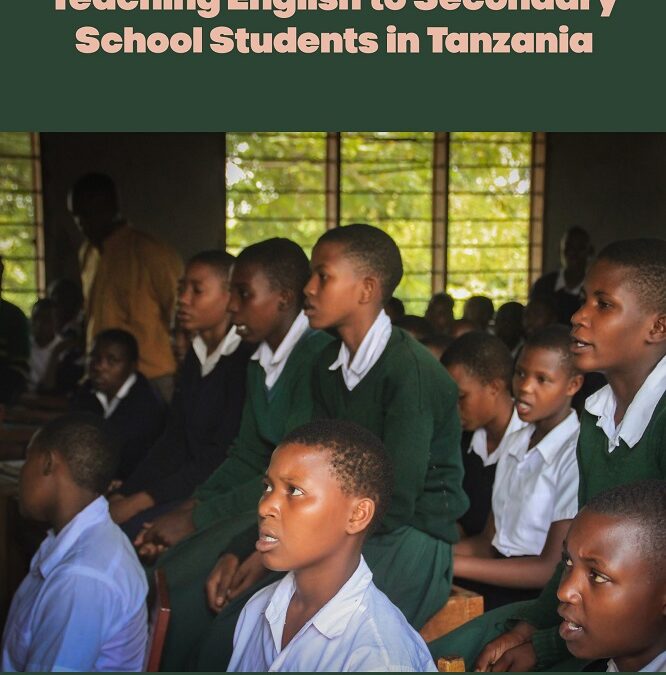
This book is a synthesis of Tanzanian educators’ core beliefs and perspectives on the effectiveness of translanguaging strategies in Teaching English as a Foreign Language to secondary school students. While the existing literature informs and addresses the topic of translanguaging in a general way, the present study does so with a particular focus on the Tanzanian educational context. The data collected from select participants through an online survey confirmed that translanguaging strategies facilitate lesson comprehension, active engagement, satisfaction, and less stress during the lesson. Conversely, adherence to the English Only Policy (EOP) acts as a barrier toward lesson comprehension, causes tension and a stressful atmosphere, and creates fear and lack of confidence, especially among students with little background in literacy. As a solution, the author recommends adapting specific translanguaging techniques such as the use of insertional and alternating methods, creating opportunities for professional development of English educators, and prioritizing instructional strategies that sustain students’ cultural identities.
Paperback: $19.95 | Kindle: $9.99
“Kagumisa addresses the complexity of the region’s geography, language practices, and school system in a way only one with intimate knowledge of the region and a keen eye for cultural and linguistic nuance could do. Drawing on surveys he conducted with educators, current research, and his own experiences growing up in Tanzania’s English-only system, he illuminates with loving attention important tensions among pedagogical practice, language values, and perceptions of the English Only Policy (EOP) in Tanzanian schools. He thus substantiates, through his own research, the recommendation that a national instructional policy allowing the use of Swahili alongside English would best support student learning and the maintenance of their cultural identities. As scholars of culturally responsive pedagogy like Gloria Ladson-Billings, Geneva Gay, and Sonia Nieto note, teaching in ways that support cultural identity are crucial to ensuring students thrive.” – Sara Cooper, Ph.D., Assistant Professor, Doctor of Arts in English Pedagogy Program, Murray State University, Kentucky, USA
“Dr. Kagumisa’s volume not only provides a useful overview of theories and practices of translanguaging but also models the protocols and considerations for applying translanguaging in a specific context. In doing so, Dr. Kagumisa lays out both challenges and solutions in second language instruction in a region in which a predominant language is contested to a degree. Most importantly, his work demonstrates in a significant and broadly useful way how translanguaging can, and should, be at the center of culturally sustainable second language instruction.” – Kevin Binfield, Ph.D., Professor and Director of Graduate Studies in English, Murray State University, Kentucky, USA
“The English-speaking world is remarkably diverse and was imprinted throughout the twentieth century by a whirlwind of independence and decolonization movements. Language and education are at the contested center when a nation transitions to self-rule. This is the case in Tanzania, a polyglot nation where speakers of Swahili, English, and hundreds of other regional and ethnic language families regularly use different languages for different purposes. Learners in such diverse linguistic environments determine the extent to which they will make full use of all of their language resources, practicing translanguaging, or combining, meshing, or switching among multiple languages. The Rev. Dr. Thomas Kagumisa reveals the complexity of translanguaging beliefs and practices in this study of Tanzanian English teachers’ translanguaging beliefs and practices. These teachers experience the tension between supporting their students’ right to their own languages and cultural heritages, providing students a robust background in their nation’s lingua franca, and reconciling national education policy with the realities of the classroom. Dr. Kagumisa, who is from the Kagera region of Tanzania, supplements the insights of his research with first-hand experience. This work has implications for educators in any linguistically-diverse place (including the United States) where teachers must understand their own translanguaging beliefs and advocate for the policies and resources necessary to serve their students.” – Dr. Zachary Garrett, Assistant Professor of English, Murray State University, Kentucky, USA
“Learning a new language is arduous when one grows up in a multilanguage context. One component of effective communication is a natural flow, and translanguaging provides that cog that dispels clogs, and Dr. Kagumisa delineates such benefits in his research; as he discovers that translanguaging is the panacea to human labor of meaning-making incurred in the context of prevalent multilanguage cognition and transaction. The socio-cultural implication of a potpourri of languages within a context requires an easier way to relay information quickly and to drive the cultural values and connection. Dr. Kagumisa argues that since translanguaging significantly bridges the communication gap and integrates the people of parallel socio-cultural history, it behooves our educational institutions to acknowledge its function and validate its dynamic in curriculum development.” – Dr. George Ebimobowei Oti, Prosocial Pedagogy Expert, San Jacinto College, Texas, USA
“Dr. Kagumisa’s study offers great promise for the reform of English instruction in Tanzania and, by extension, throughout the world, and the methods discussed will be helpful to any country struggling with a need for language acquisition in order to participate in a global linguistic system, such as Cameroonian students learning French, Uzbek students learning Russian, and Basque students learning Spanish, to name some examples. In short, Dr. Kagumisa provides a generally useful study on a method of language acquisition in an increasingly interconnected world.” – Dr. Sebastian Mahfood, OP, Returned Peace Corps Volunteer, Tunisia (1994-1996), Retired Professor of Interdisciplinary and Intercultural Studies, St. Louis, Missouri, USA
 Thomas Kagumisa is a Catholic priest originally from Bukoba Catholic Diocese, Tanzania. He is currently ministering to the Catholic Communities in the Roman Catholic Diocese of Phoenix, Arizona, USA. He obtained a B.A in Sacred Theology from the Catholic University of Eastern Africa, Nairobi, Kenya, an M.Ed. in English from Liberty University, Virginia, and a Doctor of Arts in English Pedagogy – Technology and Writing from Murray State University, Kentucky. His interest in English prompted him to delve into the topic of translanguaging, the findings of which he submitted as a Capstone Project of his doctoral program.
Thomas Kagumisa is a Catholic priest originally from Bukoba Catholic Diocese, Tanzania. He is currently ministering to the Catholic Communities in the Roman Catholic Diocese of Phoenix, Arizona, USA. He obtained a B.A in Sacred Theology from the Catholic University of Eastern Africa, Nairobi, Kenya, an M.Ed. in English from Liberty University, Virginia, and a Doctor of Arts in English Pedagogy – Technology and Writing from Murray State University, Kentucky. His interest in English prompted him to delve into the topic of translanguaging, the findings of which he submitted as a Capstone Project of his doctoral program.
The page you requested could not be found. Try refining your search, or use the navigation above to locate the post.
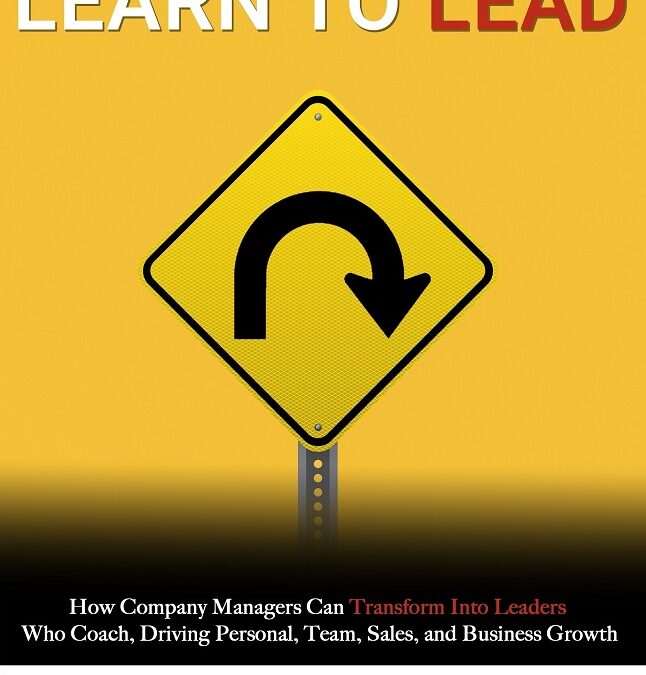

Author, Sean Kelley (left), with a fan.
Learn to Coach, Learn to Lead is for leaders of all levels wanting to hone their leadership skills and master coaching. This book is chock-full of tactical strategies to generate buy-in and maximize employees and sales growth. The coaching conversations documented within will enhance your career fulfillment while teaching you to impact lives through coaching. Remember, everyone you get to manage is also a person you have a chance to lead.
Paperback: $19.95 | Hardback: $24.95 | Kindle: $9.99
“Learn to Coach, Learn to Lead is a pivotal resource that offers insights into the power of effective coaching in leadership. Sean Kelley, drawing from a wealth of experience that spans from serving in the military to revolutionizing sales teams, offers wisdom that transcends industries. This book is not just about leadership; it’s about instilling a coaching mindset that transforms challenges into triumphs and teams into families. Kelley’s approach equips leaders with the tools to foster resilience, drive performance, and create a legacy of empowered individuals.” – Dr. Marshall Goldsmith is the Thinkers50 #1 Executive Coach and New York Times bestselling author of The Earned Life, Triggers, and What Got You Here Won’t Get You There
“This book is an invaluable tool/guide for those who are inspired to be coaches and/or business leaders at the most elite levels of success. For coaches in the world of sports, the principles and real-world anecdotes contained within will not only equip you to be a master communicator and leader in your sport, but they will also arm you with the coaching-leadership skills that you can take to your next field of endeavor when that inevitable transition takes place. Invest in yourself.” – Kelly Kleinman/Car Motivators, Marketing & Content Director
“Written for anyone who manages people, this book provides wisdom and inspiration for taking those people to the next level in their personal and professional development.” – Dr. Sebastian Mahfood, OP, co-author with Phillip Mahfood of Homework: How to Hire, Manage & Monitor Employees who Work at Home (forthcoming by En Route in 2024)
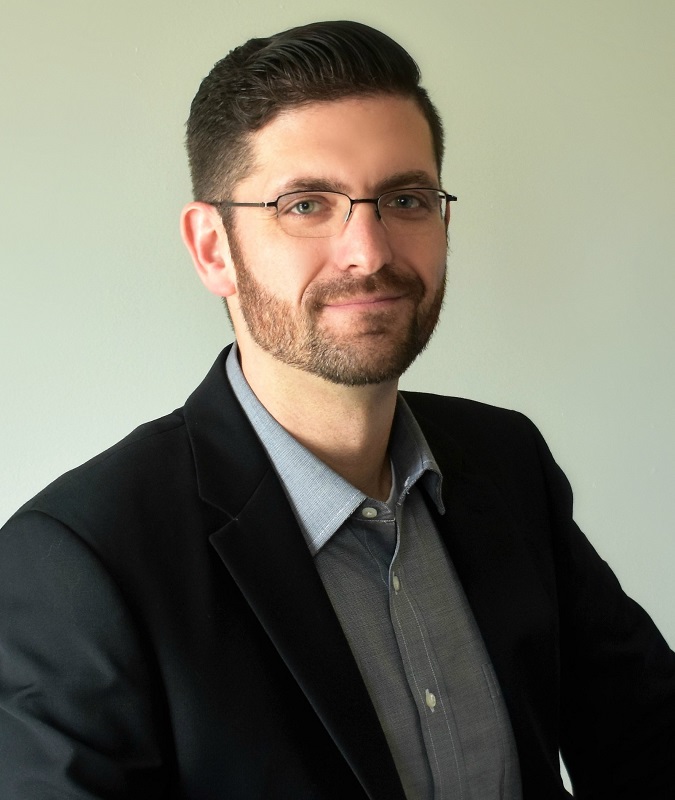 After leaving US Army Special Operations as a Non-Commissioned Officer, Sean Kelley applied those leadership principles to automotive management, and successfully led car dealerships for over a decade. After recently surviving severe covid pneumonia, Sean’s most recently published book The Visitor is being sold in multiple countries and published in several languages. The non-profit Sean launched, Cards for COVID, cards4covid.org, supports hundreds of medical professionals and COVID patients in multiple States. Sean’s passion for people development and ability to coach led him to grow from General Sales Manager to Chief Business Development Officer of a multi-million-dollar CRM software company. Now, as CEO of Car Motivators, and founder of Market Motivators, Sean and his team works with dozens of car dealerships, technology companies, fortune 500 companies, start-ups, and hundreds of coaching clients across the country to help them achieve their biggest goals. Sean helps his clients grow with a no bull approach, ability to improve communication, follow through and a focus on continuous improvement. As such, Sean’s clients consistently set sales records, eliminate employee turnover, all while increasing gross and net profit. More importantly, Sean and his team help the managers throughout the businesses they coach enjoy their role by helping them grow as leaders. Sean was consultant of the year in 2018 by Dealership News and recently ranked #10 in Ambition.com top 100 sales coaches. Sean’s engaging presentations have been featured at conferences like: Digital Dealer, Automotive Game Changers, Rockstar Tech Conference, Canadian Game Changers, SLADA, TIADA, and DrivingSales. Sean’s vision is to positively impact the leadership landscape and culture of the businesses he works with, by teaching managers the leadership language of coaching.
After leaving US Army Special Operations as a Non-Commissioned Officer, Sean Kelley applied those leadership principles to automotive management, and successfully led car dealerships for over a decade. After recently surviving severe covid pneumonia, Sean’s most recently published book The Visitor is being sold in multiple countries and published in several languages. The non-profit Sean launched, Cards for COVID, cards4covid.org, supports hundreds of medical professionals and COVID patients in multiple States. Sean’s passion for people development and ability to coach led him to grow from General Sales Manager to Chief Business Development Officer of a multi-million-dollar CRM software company. Now, as CEO of Car Motivators, and founder of Market Motivators, Sean and his team works with dozens of car dealerships, technology companies, fortune 500 companies, start-ups, and hundreds of coaching clients across the country to help them achieve their biggest goals. Sean helps his clients grow with a no bull approach, ability to improve communication, follow through and a focus on continuous improvement. As such, Sean’s clients consistently set sales records, eliminate employee turnover, all while increasing gross and net profit. More importantly, Sean and his team help the managers throughout the businesses they coach enjoy their role by helping them grow as leaders. Sean was consultant of the year in 2018 by Dealership News and recently ranked #10 in Ambition.com top 100 sales coaches. Sean’s engaging presentations have been featured at conferences like: Digital Dealer, Automotive Game Changers, Rockstar Tech Conference, Canadian Game Changers, SLADA, TIADA, and DrivingSales. Sean’s vision is to positively impact the leadership landscape and culture of the businesses he works with, by teaching managers the leadership language of coaching.
The page you requested could not be found. Try refining your search, or use the navigation above to locate the post.